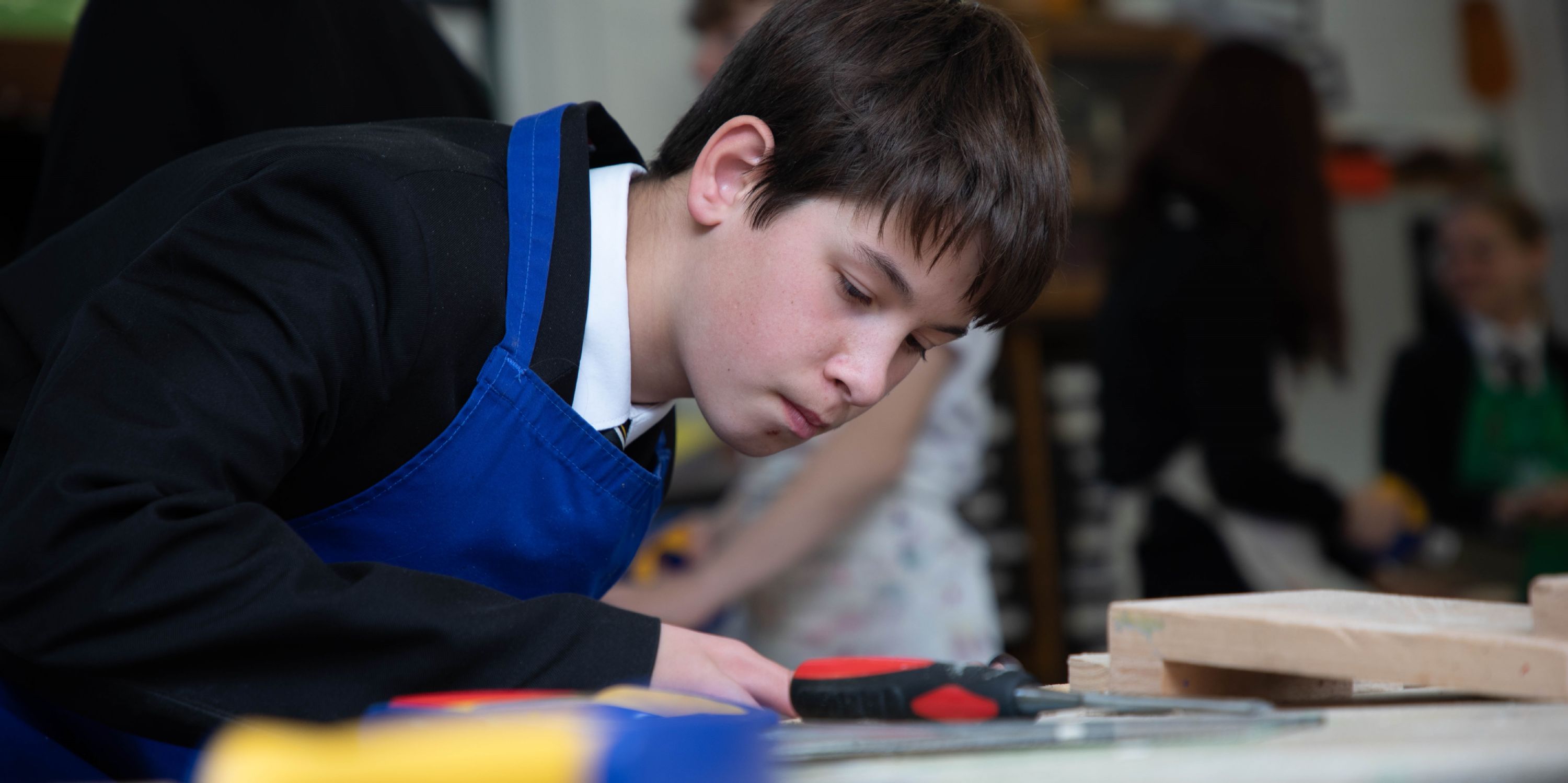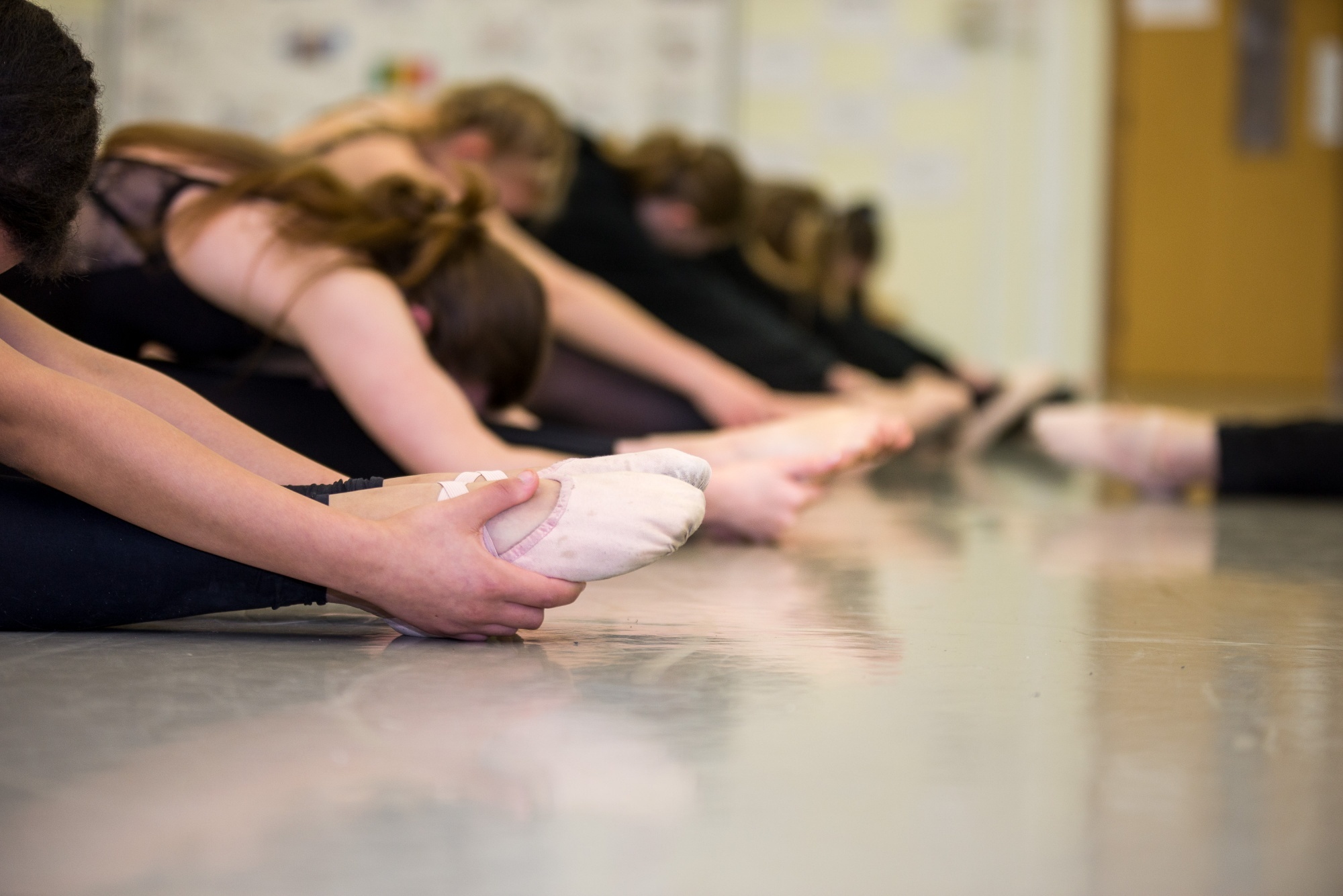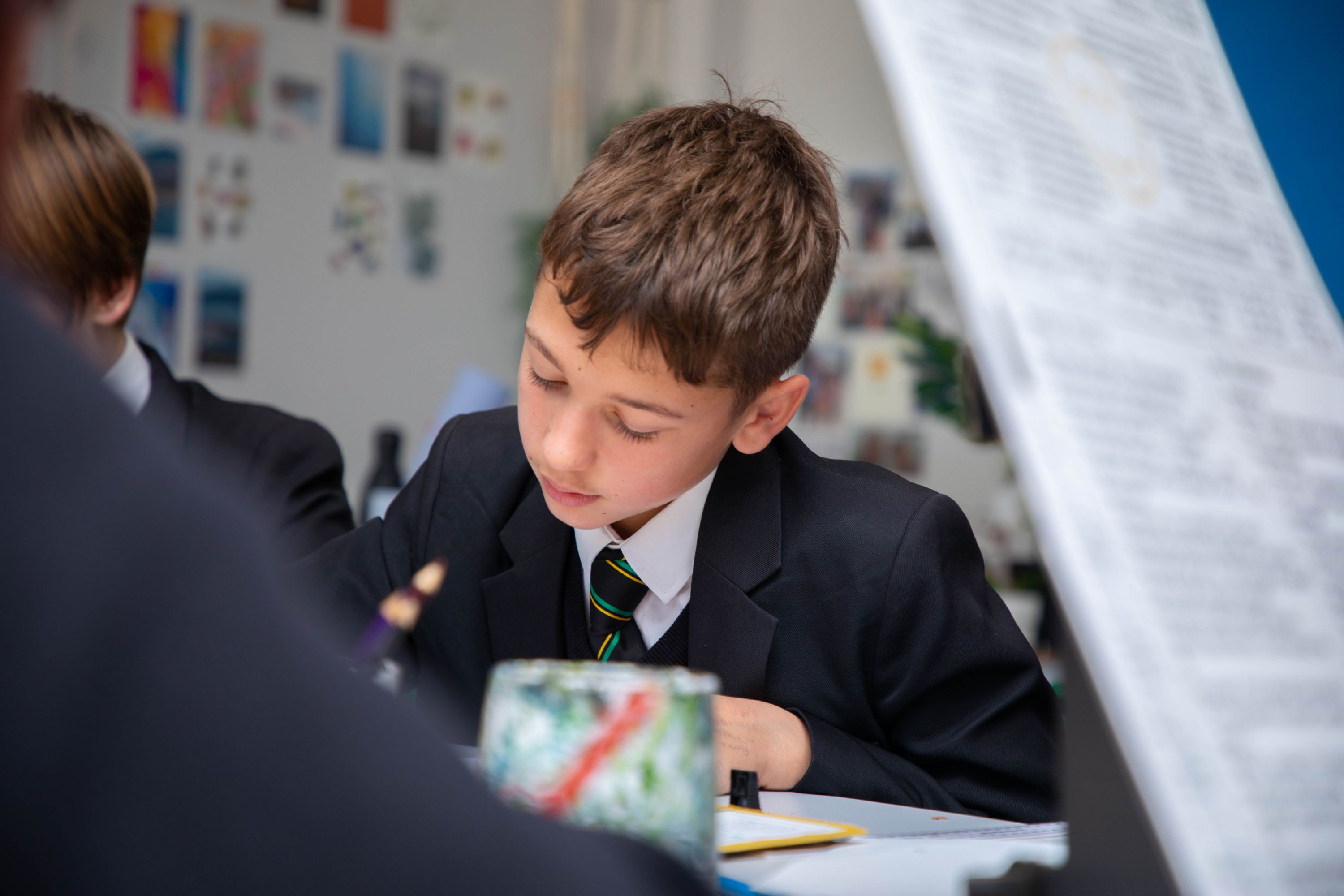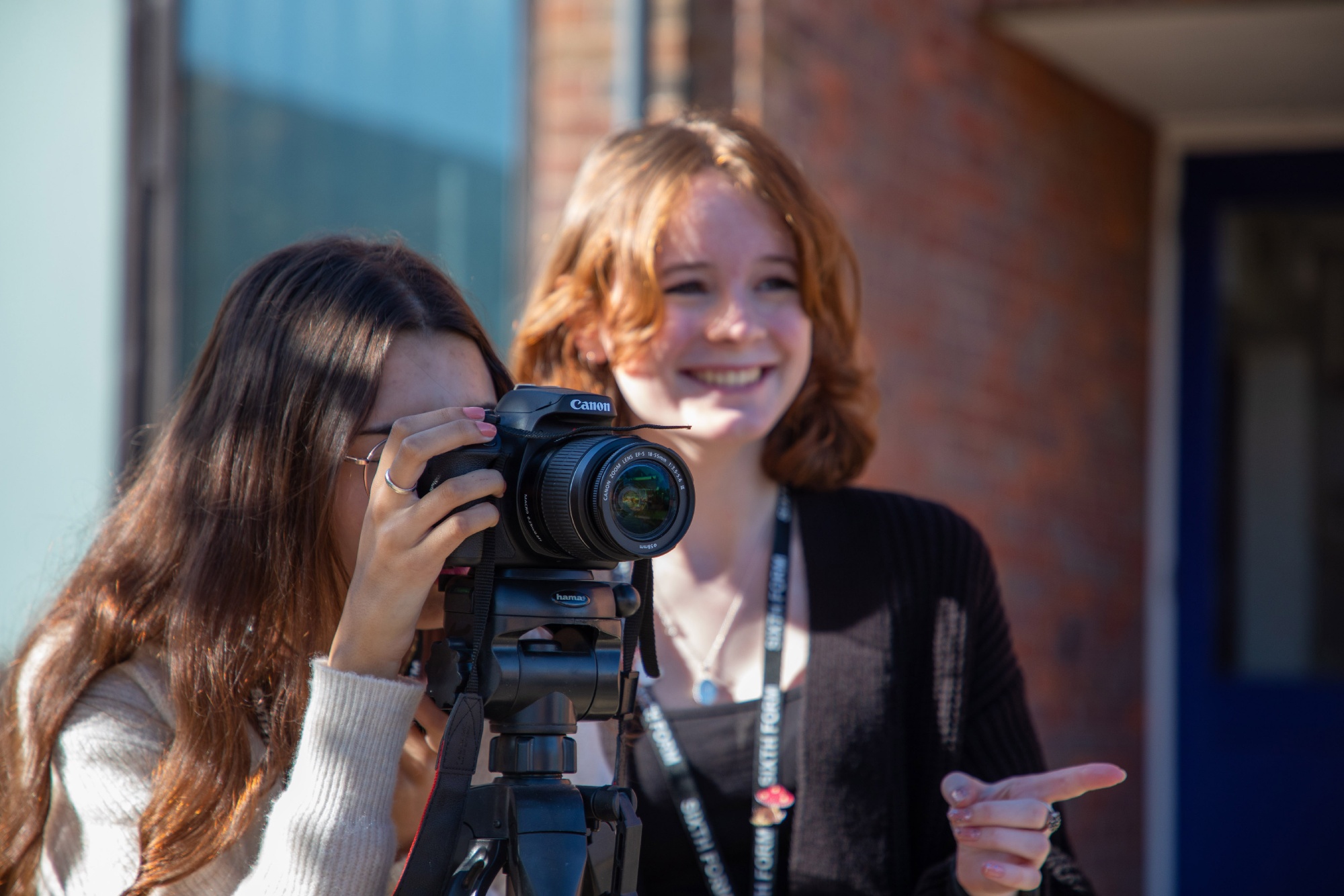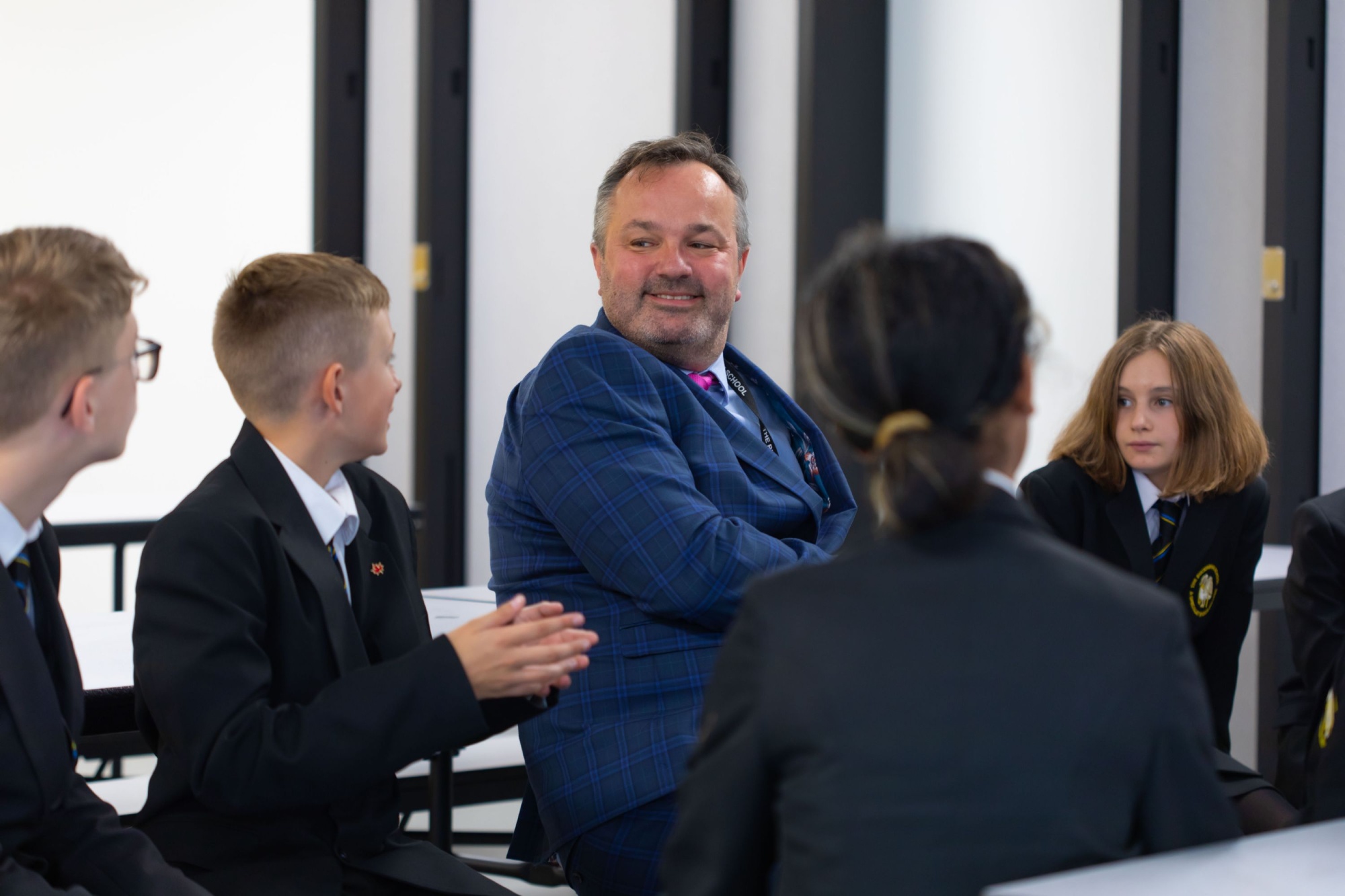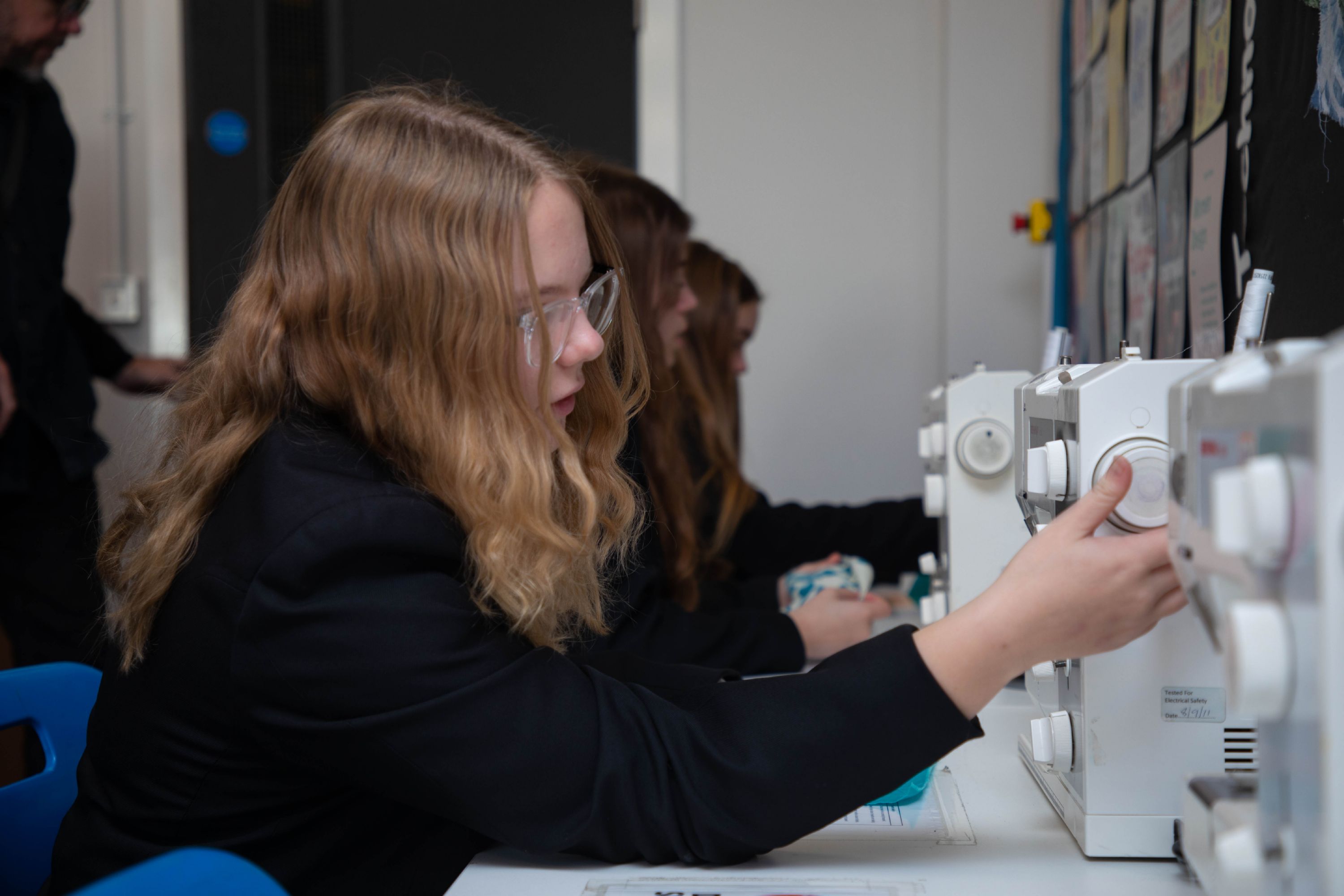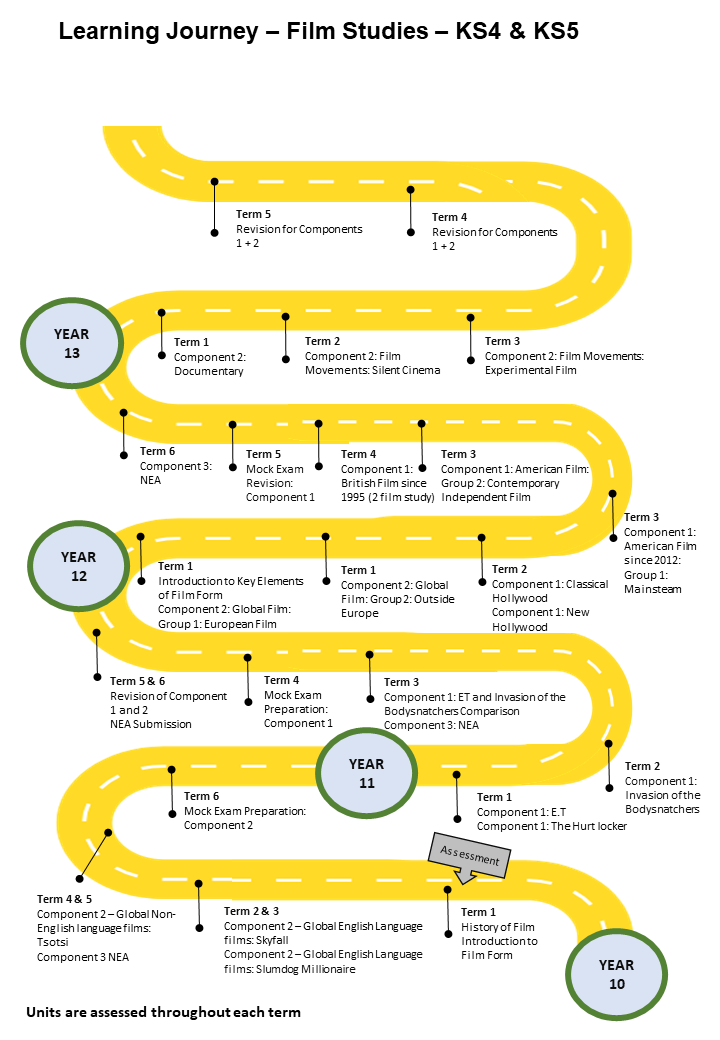English & Film Studies
English & Film Studies department Curriculum Intent
Our knowledge-rich curriculum will inspire our students to appreciate the power of language and the opportunities that it provides for success in an ever-changing society and empower them to develop curiosity, imagination, expression, empathy and tolerance. Within KS3 Language and Literature skills are interleaved throughout all schemes of work. These schemes of work provide students with opportunities to engage with a range of fiction and non-fiction from across time periods to develop critical and reflective analytical skills; with a balance of reading and writing skills being assessed throughout. Students will develop creatively to write engaging and interesting narratives and descriptions; articulate strong and well-supported arguments and to write with conviction.
The beauty of both English Literature and English Language is the wide-ranging skills it provides students with: resilience in the face of some challenging language in Shakespeare and 19th Century texts; the ability to empathise with characters’ situations and events; evoke curiosity to discover more about the time periods in which a text was written; respecting the opinions of others whilst having the confidence to express their own. Through the English Literature curriculum students will gain a thorough knowledge and understanding of how the literary texts they are studying are influenced by contextual factors and explore how different readers and audiences respond to presentations of characters, places and themes. A good balance of genres is clear throughout each Key Stage, ensuring poetry, plays and novels are studied. Through the English Language curriculum students will develop the necessary skills to decode an unseen text with confidence so as to be able to unpick layers of meaning.
Being Engaged at Key Stage 3: learning with kindness and curiosity.
English plays a vital role in fostering student engagement and responsibility by encouraging curiosity, creativity, and critical thinking. Through the exploration of diverse texts, students are introduced to a range of voices, cultures, and perspectives, which helps to develop empathy and a deeper understanding of the world around them. Engaging lessons that incorporate discussion, performance, and writing allow students to express their ideas confidently and develop a personal response to literature. By connecting reading and writing tasks to students’ own experiences and interests, English supports not only academic progress but also a lifelong enjoyment of language and storytelling.
Being Independent at Key Stage 4: taking responsibility for learning and growth.
English Language and Literature foster independence by encouraging students to think critically, form their own interpretations, and express ideas with clarity and confidence. Through close analysis of texts and purposeful writing tasks, students learn to make informed choices about structure, language, and style. They are supported in developing independent reading habits, engaging with complex themes, and drawing connections between texts and wider contexts. Across both disciplines, learners are given increasing responsibility for planning, drafting, and refining their work, promoting self-reflection and resilience. This independence equips students with the analytical and communication skills essential for success in further education and beyond.
Being Exemplary at Key Stage 5: habitually showing integrity, reflection, responsibility and respect.
Students of English Language and English Literature are expected to model exemplary academic behaviours through intellectual curiosity, critical independence, and refined communication. They engage with complex literary and linguistic concepts, producing insightful, well-supported analysis and original interpretations. Through independent research, wider reading, and sustained written work, students demonstrate academic maturity and a commitment to scholarly excellence. Discussion and debate in the classroom are underpinned by respectful collaboration and a willingness to challenge ideas thoughtfully. In both written and spoken forms, students strive for precision, creativity, and depth—setting a standard for analytical thinking and articulate expression that inspires their peers and prepares them for higher education and professional pathways.
English & Film Studies department ethos
Our English curriculum is founded on the belief that language and literature are powerful tools for understanding the world and one another, fostering respect for all. Through the study of diverse texts, creative expression, and critical thinking, we aim to nurture students who are not only skilled communicators but also compassionate and open-minded individuals who reflect on what they know and how they interact in the world. We foster empathy and respect for others by encouraging students to step into the lives and experiences of others through literature, developing a deeper understanding of perspectives that differ from their own. By exploring voices from a range of cultures, identities, and historical moments, learners cultivate the ability to see the world through others’ eyes.
Respect, responsibility and reflection underpin our classroom culture, where all ideas are heard, valued, and discussed thoughtfully. We model and expect respectful dialogue and promote tolerance by engaging with complex social, moral, and cultural issues in literature. Students learn to appreciate diversity, challenge prejudice, and explore the role of language in shaping society, thus becoming informed, reflective citizens.
Finally, we encourage curiosity as a driving force in our learners’ journeys. Whether interrogating the meanings of a poem, researching a writer’s context, or crafting their own narratives, students are inspired to ask questions, take intellectual risks, and discover joy in the power of words.
Together, these values shape a curriculum that prepares students not only for academic success, but also for meaningful participation in a diverse and interconnected world.
Click on the links below for English Language & Literature
Careers linked to English
Why Study English?
Studying English develops essential skills that are highly valued in a wide range of careers. Through reading, writing, and discussion, students learn to communicate clearly, think critically, and analyse information effectively. English also fosters creativity, emotional intelligence, and the ability to understand different perspectives—qualities that are key to leadership, collaboration, and problem-solving in any workplace. Whether crafting persuasive arguments or interpreting complex ideas, English equips students with the confidence and versatility to succeed in a rapidly changing world.
Skills You’ll Gain
- Core Communication Skills
- Confident verbal communication
- Persuasive argument construction
- Interpreting meaning
- Evaluating texts and arguments
- Drawing inferences and making connections
- Considering multiple viewpoints and perspectives
- Creative writing and storytelling
- Synthesising information from different sources
- Formulating and supporting interpretations with evidence
- Empathy and emotional intelligence
- Confidence in discussion and debate
- Reflective thinking and self-expression
- Active listening and respectful collaboration
- Structuring essays and arguments
- Editing and proofreading
Education & Career Pathways
GCSE English Language and GCSE English Literature leading to:
Post-16 Options:
- A-Level English Language
- A-Level English Literature
- A-Level Film Studies
Post-18 Higher Education Options:
- BA in English Literature, BA in English Language, BA in Creative Writing
- BA in English and... (combined degrees, e.g., English and History, English and Drama)
- Journalism, Media, Communications degrees
- Law, Politics, or Education degrees (English is highly valued here too)
Postgraduate Options:
- MA in Literature, Linguistics, or Writing
- PGCE (for teaching)
- Journalism qualifications (NCTJ)
- Masters/PhD for academic careers
Example Careers in English
Media, Writing, and Communications
- Journalist or Editor
- Copywriter or Content Creator
- Author or Scriptwriter
- Communications Officer
- Public Relations (PR) Specialist
- Social Media Manager
- Publisher or Literary Agent
- Proofreader
- Administration roles
Education and Academia
- Primary or Secondary English Teacher
- University Lecturer or Academic Researcher
- English as a Foreign Language (EFL) Teacher
- Education Consultant
- Curriculum Designer
- Pastoral Roles
- Administration roles
Law and Public Services
- Solicitor or Barrister (with further training)
- Civil Service roles
- Political Advisor or Policy Analyst
- Campaigner or Advocate
- Administration roles
Creative Industries
- Screenwriter or Playwright
- Theatre or Film Director (with training)
- Arts Administrator or Festival Organiser
- Advertising or Marketing Executive
- Administration roles
Business and Other Professions
- HR Specialist
- Brand Strategist
- Corporate Communications
- Editor or Proofreader
- Researcher or Analyst
- Administration roles
ASSESSMENT
Accordion content
FURTHER READING
Accordion content
LEARNING JOURNEY
| YEAR 7 | |||||||||||||||||||||
|---|---|---|---|---|---|---|---|---|---|---|---|---|---|---|---|---|---|---|---|---|---|
|
| YEAR 8 | |||||||||||||||||||||
|---|---|---|---|---|---|---|---|---|---|---|---|---|---|---|---|---|---|---|---|---|---|
|
| YEAR 9 | |||||||||||||||||||||
|---|---|---|---|---|---|---|---|---|---|---|---|---|---|---|---|---|---|---|---|---|---|
|
| YEAR 10 | |||||||||||||||||||||
|---|---|---|---|---|---|---|---|---|---|---|---|---|---|---|---|---|---|---|---|---|---|
|
| YEAR 11 | |||||||||||||||||||||
|---|---|---|---|---|---|---|---|---|---|---|---|---|---|---|---|---|---|---|---|---|---|
|
English Literature
| YEAR 12 | |||||||||||||||||||||
|---|---|---|---|---|---|---|---|---|---|---|---|---|---|---|---|---|---|---|---|---|---|
|
| YEAR 13 | |||||||||||||||||||||
|---|---|---|---|---|---|---|---|---|---|---|---|---|---|---|---|---|---|---|---|---|---|
|
English Language
| YEAR 12 | |||||||||||||||||||||
|---|---|---|---|---|---|---|---|---|---|---|---|---|---|---|---|---|---|---|---|---|---|
|
| YEAR 13 | |||||||||||||||||||||
|---|---|---|---|---|---|---|---|---|---|---|---|---|---|---|---|---|---|---|---|---|---|
|
REVISION RESOURCES
Click on the links below for Film Studies
CAREERS linked to FILM STUDIES
Why Study Film Studies?
Film is one of the most powerful and influential art forms of the modern world. Studying film allows students to explore stories, cultures, and ideas that shape our understanding of ourselves and others. It helps them see how moving images can inform, persuade, entertain, and challenge us — making Film Studies not only a creative subject, but an essential one for life in a media-rich society. By studying film, students become critical viewers, confident communicators, and thoughtful creators. They learn to analyse visual language, narrative structure, and representation with depth and precision. They also gain valuable insights into history, society, and culture from local and global perspectives.
Skills You’ll Gain
- Critical thinking – interpreting meaning, evaluating techniques, and questioning messages
- Analytical writing – structuring clear, persuasive arguments with evidence
- Creative thinking – generating original ideas for film-making and storytelling
- Collaboration – working effectively in groups to plan, film, and edit project
- Media literacy – understanding how media influences audiences and shapes perception
- Cultural awareness – exploring diverse voices, traditions, and worldviews
- Technical skills – learning the basics of camera work, editing, and sound design
- Communication – expressing ideas clearly through speaking, writing, and visual media
Education & Career Pathways
GCSE Film Studies leading to:
Post-16 Options:
- A-Level Film Studies or Media Studies
- A-Level English Literature, Art, or Drama (linked through analytical and creative skills)
- BTEC Creative Media Production
Post-18 Higher Education Options:
Foundation Diplomas in Art, Media, or Film
Undergraduate degrees in:
- Film Studies
- Film making / Film Production
- Screenwriting
- Media and Communication
- Animation / Visual Effects (VFX)
- Broadcasting / Journalism
- Digital Media
- Cultural Studies
- English and Film / Film and Philosophy
Example Careers in Film Studies
Creative & Production Roles
- Director
- Screenwriter
- Cinematographer / Camera Operator
- Editor (Post-production)
- Producer
- Sound Designer / Sound Mixer
- Production Designer / Art Director
- Lighting Technician / Gaffer
- Costume / Set Designer
Media & Communication
- Journalist
- Film Critic / Reviewer
- Broadcaster / Presenter
- Social Media Manager
- Content Creator (YouTube, TikTok, etc.)
- Public Relations (PR)
- Advertising / Marketing Executive
Digital & Technical Careers
- Animator
- Visual Effects (VFX) Artist
- Game Designer
- Multimedia Specialist
- Web / Digital Content Developer
Academic & Educational Path
- Film/Theatre Academic or Lecturer
- Media/English Teacher
- Education Outreach Coordinator
- Archivist / Film Curator
- Researcher for TV/Film
Other Related Fields
- Event Management (e.g., Film Festivals)
- Talent Agent / Casting Director
- Script Reader / Development Executive
- Cultural Policy / Arts Administration
- Humanities Research / Cultural Criticism
assessment
Accordion content
further reading
Accordion content
Learning journey
Revision resources
Accordion content

